
Red Paddle Co's Sup Safety Tips For Winter 2026
Here's our selection of essential SUP safety tips to help keep you safe on the water throughout winter.
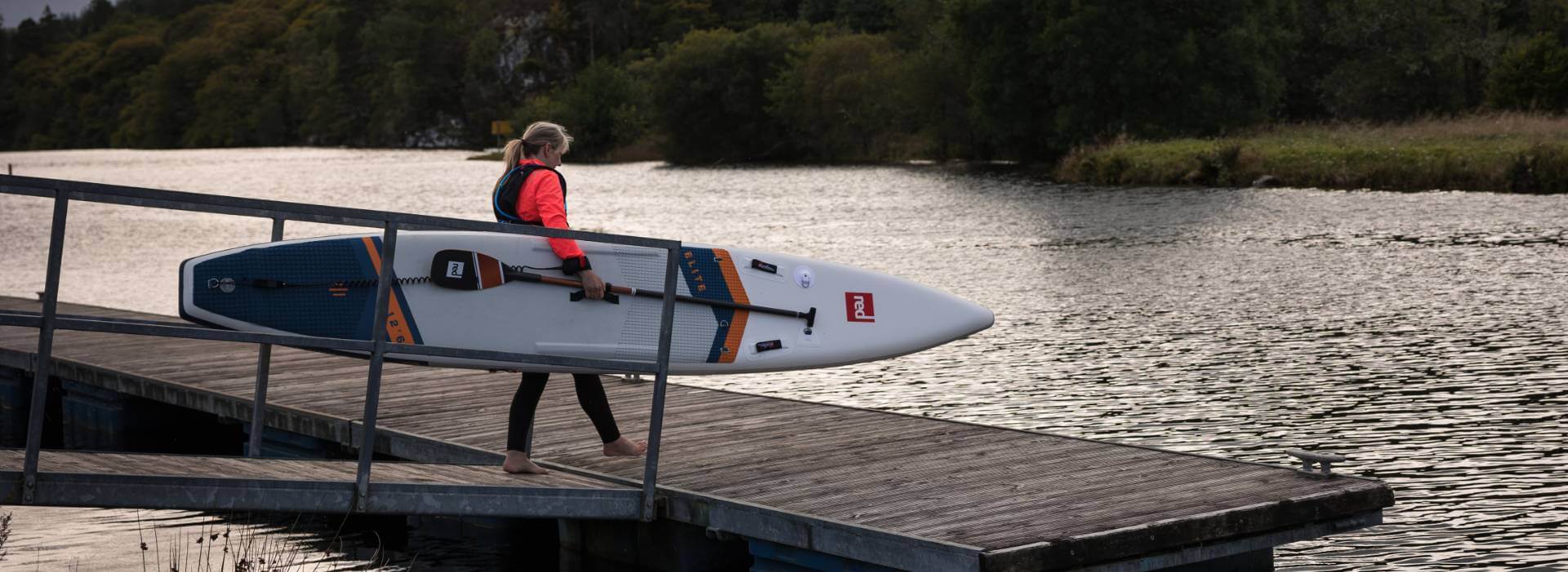
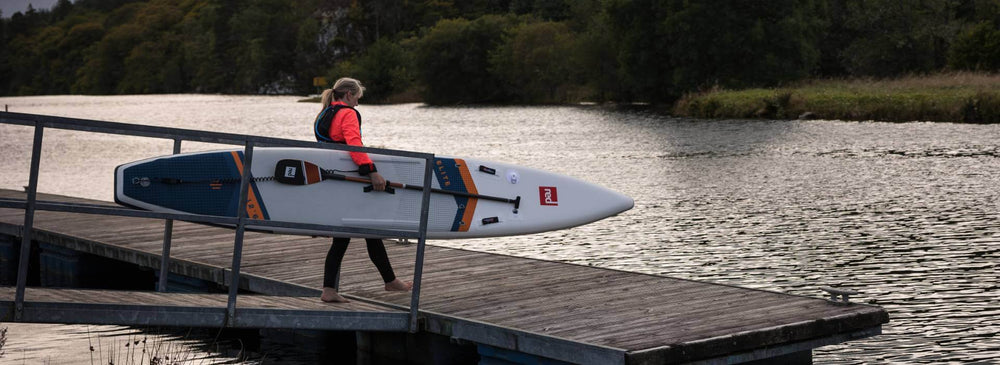
Written by Lydia Burdett /
SUP racing is an incredible sporting activity, but it's demanding with high requirements in endurance, strategy, and - most importantly - technique. Whether you’re just starting out in the SUP racing scene or have years of experience under your belt, this Red Paddle Co guide will help you explore a variety of different approaches you can take to improving your SUP racing technique.
When it’s not going the way you want it to, it's easy to see wind as the enemy in a SUP race, but you can learn to use it effectively. Instead of trying to power your way through a headwind, tilt the angle slightly to cut through with much less resistance. Lengthen your strokes and allow the wind to propel you when it’s at your back, and in a crosswind, make adjustments as needed to keep your balance and take advantage of the small gusts that come your way. Treat the wind as a part of your strategy rather than an obstacle to overcome during the race.
Racers can often overlook small but crucial details or block out their surroundings entirely when their focus is intensely fixated on the race. Always be aware of your competitors and the conditions around you - see who else is going after the same waves or making buoy turns. This will not only keep you and your fellow racers safe but also help you think strategically.
You can take your SUP racing technique to the next level by incorporating experience and knowledge from a variety of other paddle disciplines. You have no guarantee of your conditions on the race day, so competitors who specialise in flat-water races will find themselves at a major disadvantage in choppy conditions, and vice versa. You can make yourself a much more well-rounded SUP racer by gaining experience in other disciplines, such as SUP surfing or SUP touring.
Your improved SUP racing technique needs to be supported with proper dietary management leading up to the race. You need to make sure you’re fuelled with the right stuff before you head out, which means you need complex carbohydrates such as oatmeal or granola, and protein-rich foods like red meat, eggs, fish and beans. The exact amounts vary from person to person, so have this figured out well in advance of your race.
Performing at your best in a SUP race means that you need to be training for quickly switching between efficient, continuous strokes and explosive bursts. Intensive interval training is the best way to simulate proper race conditions, alternating between intense sprints and lighter paddling over time to develop the required endurance for your paddle board technique over long race courses. Speaking from experience, SkiErg Machines are perfect for this kind of training.
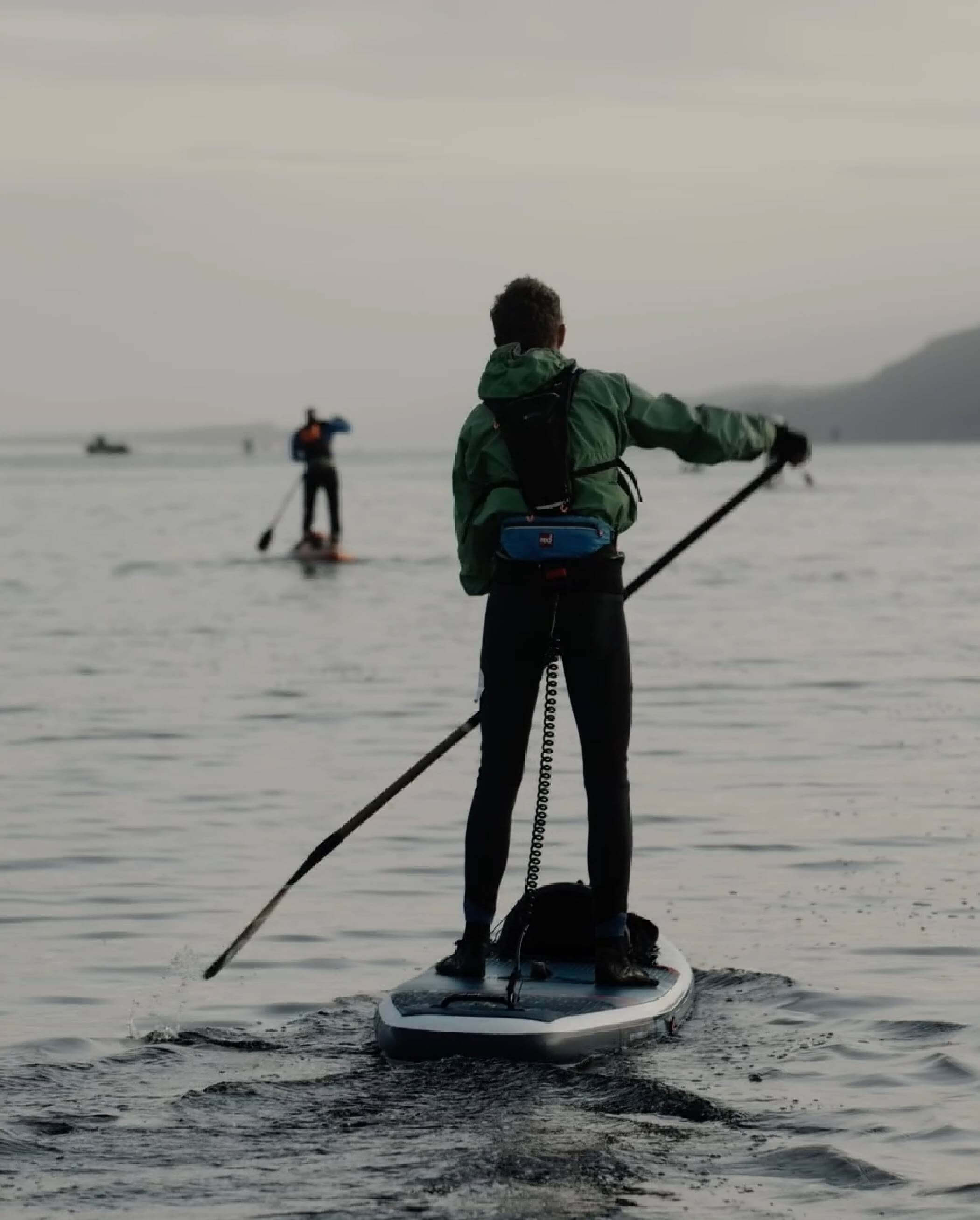
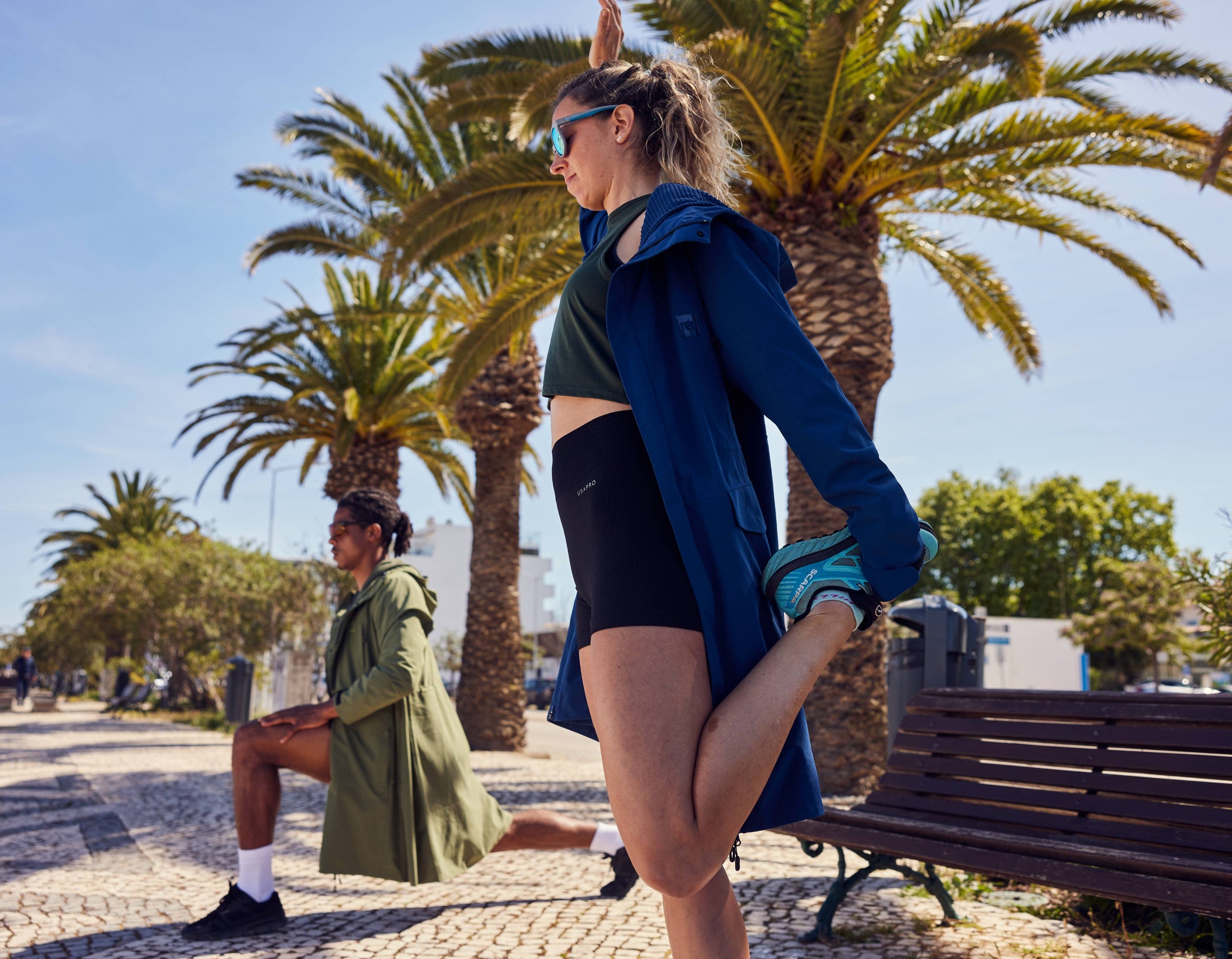
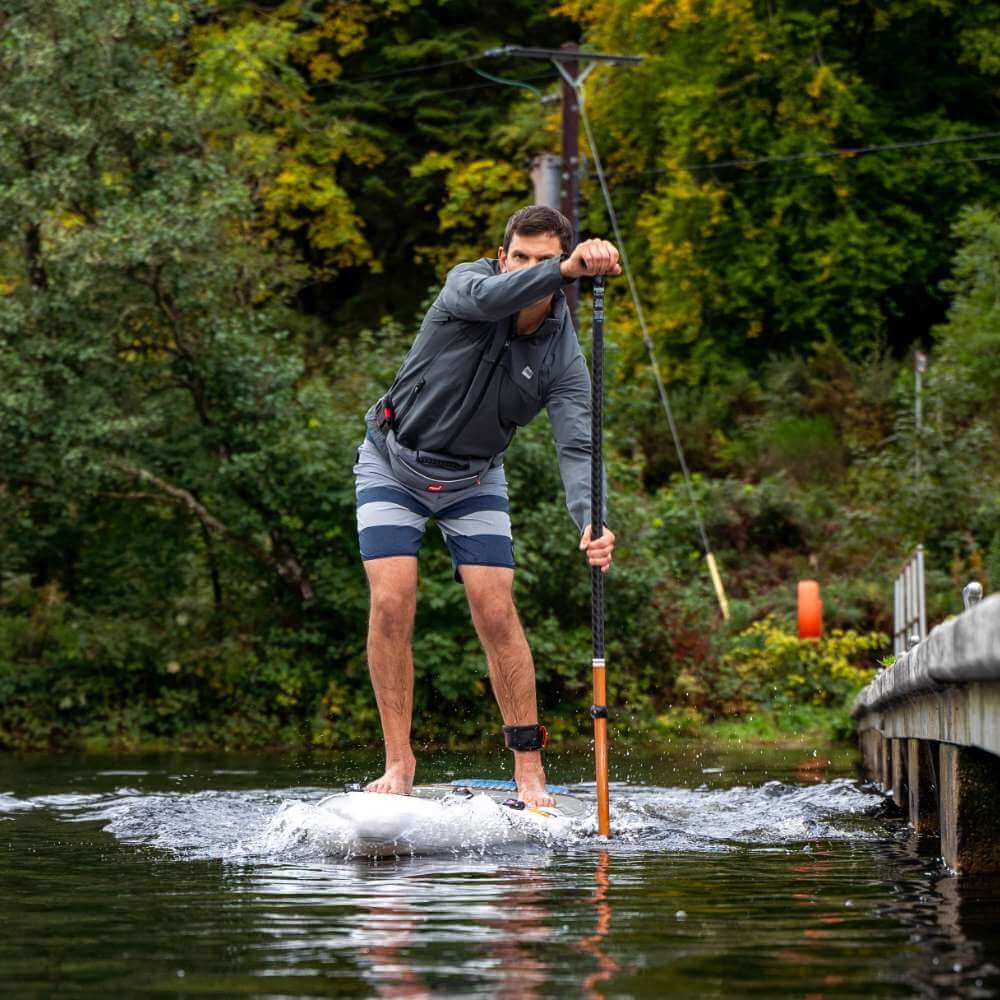
A paddle board racer can learn to understand water dynamics and make use of them to get an edge in a race and conserve energy. This particular SUP racing technique requires a technical understanding of and ability to recognise wakes, current lines and wind patterns. With proper positioning, it's possible to draft behind a competitor or catch small bumps to give yourself an advantage without expending energy unnecessarily.
Nothing quite prepares you for racing like actually racing! Get together your friends and fellow paddlers for a group SUP session, create your own start and finish line, and put your technique to the test. This way, you’ll not only be able to start getting used to being in a competitive headspace, but you’ll also be able to see how your technique and form fare when under some level of pressure and identify any weak points that you can work on in your final training sessions before race day.
Being able to achieve high speeds doesn’t mean anything if you aren’t able to maintain your stability while you’re doing it, so it's important not to neglect training your balance when you’re refining your SUP racing technique. Practising in choppy conditions or alternatives such as SUP Yoga can help you become familiar with balancing in tough situations, allow you to spend less time self-correcting and safely put more power into your strokes.
A common mistake we see in inflatable SUP races is working too hard instead of not working hard enough. Loosen your grip a little and take it easy; the reduced pressure will turn into results. Putting in too much will lead to overexertion where it's not necessary and can cause you to become too invested and make reckless decisions that harm your placement instead of helping it.
It’s amazing how much difference your breathing can make to your performance in a race. The right breathing techniques boost mental and physical performance, helping you to stay calm, focused, and able to put your all into each strong. Your breathing also supports the delivery of oxygen to your muscles, allowing you to paddle more efficiently and sustain the effort needed to cross the finish line first. You can even notice a difference in terms of recovery times, allowing you to get back on the water quicker and faster next time.
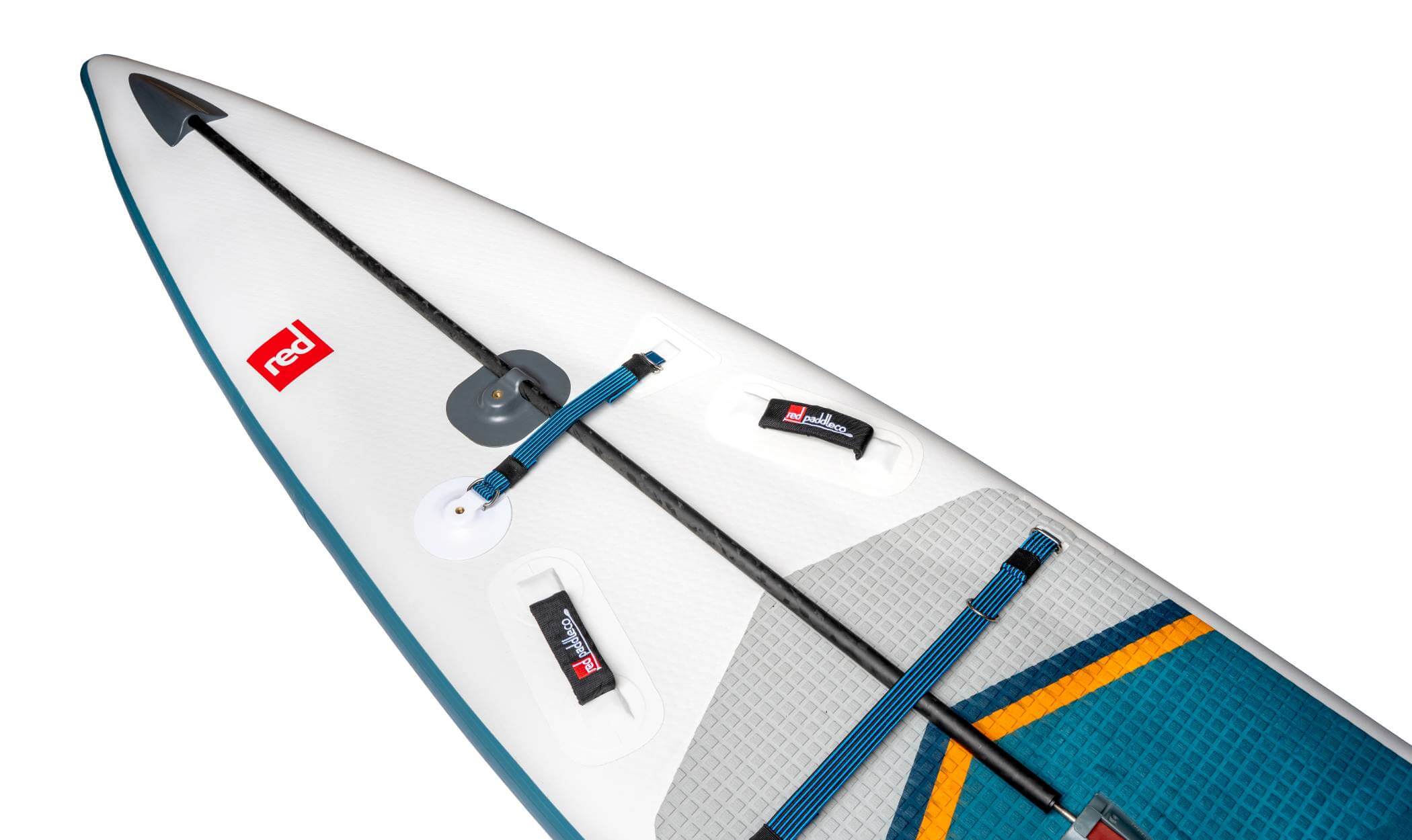
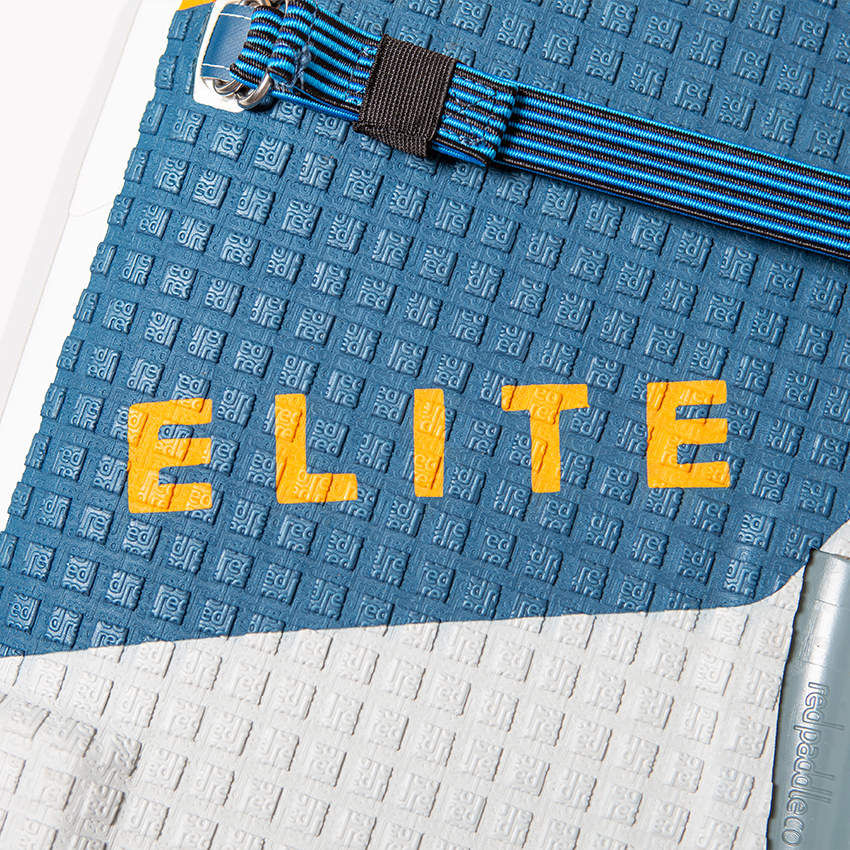
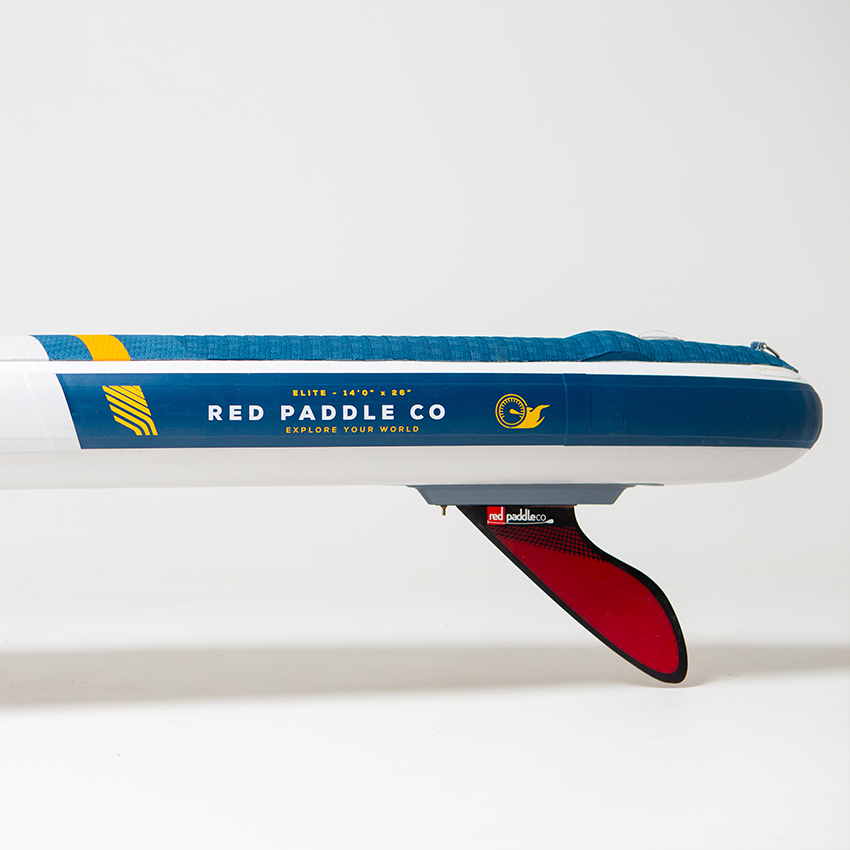
Don’t forget that your SUP racing technique needs to be supplemented with the right gear to perform at your absolute best in a race. A board from our selection of SUP race boards, such as the 14'0" Elite MSL 800, will be a phenomenal choice, being designed from the ground up with fantastic performance in mind. The MSL racing paddle board features a slender profile and tapered nose to effortlessly cut through water, and has excellent stiffness thanks to RSS battens and FFC rod. Meanwhile, a Red Paddle Co paddle, such as the Ultimate Adjustable Carbon SUP Paddle, will provide you with optimum power thanks to its carbon cross-weave, allowing for an exceptional strength-to-weight ratio.
We hope that you find these tips useful in training for your next SUP race. However, if you’re still struggling or don’t know where to start, we recommend finding a SUP racing coach. Even incredibly self-motivated SUP racers will eventually begin to dip in their improvement without the guidance of a coach. A skilled SUP coach can spot inefficiencies in your SUP racing technique that you likely cannot, as well as help you manage your training plans and goals and keep you accountable for your improvement. You’ll be able to see improvement much faster with the guidance of a proper coach.
Your bag is currently empty.
Creating an account has many benefits: